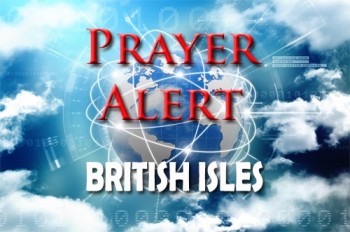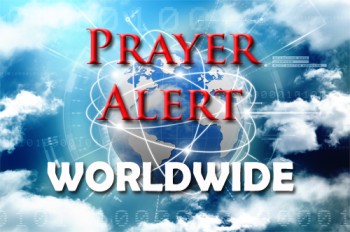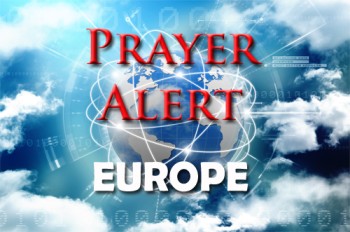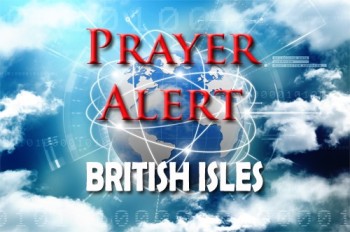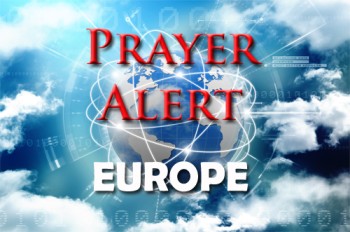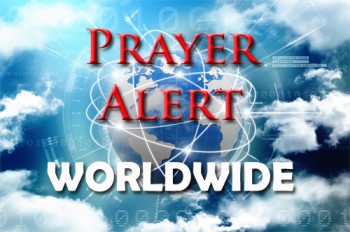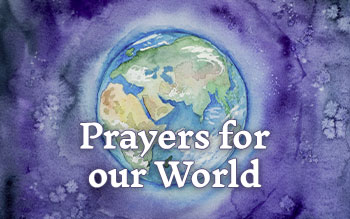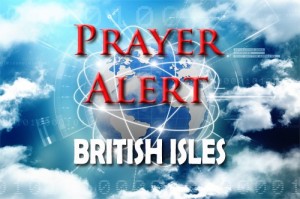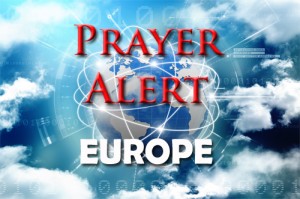Displaying items by tag: deportation
Migrant sex offender given £500 after threat to disrupt deportation
The Government has confirmed that convicted sex offender Hadush Kebatu, an Ethiopian national mistakenly released from prison, was paid £500 before being deported. Kebatu, jailed for sexually assaulting a 14-year-old girl and a woman while living in an Essex asylum hotel, was freed in error from HMP Chelmsford, later re-arrested, and flown to Ethiopia under guard. Officials authorised the payment after he threatened to disrupt his removal, arguing it was cheaper than re-booking flights or facing legal delays that could cost taxpayers thousands. Ministers called the blunder 'deeply regrettable' and have ordered an independent inquiry, with one officer suspended and new release checks introduced. Opposition leaders condemned the payment as 'outrageous' and proof of a broken immigration system, while home secretary Shabana Mahmood said she acted swiftly to ensure deportation. Kebatu’s mistaken release sparked local protests and renewed concern over public safety, asylum policy, and government competence in managing foreign offenders awaiting deportation. See
Rwanda: talks with USA about receiving immigrants
Rwanda has confirmed it is in early discussions with the Trump administration about potentially receiving immigrants deported from the USA. Foreign minister Olivier Nduhungirehe stated the talks are ongoing but not finalised. The move follows US efforts to find foreign partners for deportations as part of Trump’s expansive immigration enforcement strategy, which includes invoking the 1798 Alien Enemies Act - granting the president wartime authority to deport noncitizens without due process. In April, the USA deported an Iraqi man accused of IS ties to Rwanda. Reports also suggest that migrants with criminal records might be sent to Rwanda or Libya. In 2022 Rwanda had agreed to accept asylum-seekers from the UK, but Keir Starmer’s government scrapped the deal due to legal and human rights concerns. A spokesperson for UNHCR has said: ‘People fleeing war, conflict and persecution deserve compassion and empathy. They should not be traded like commodities and transferred abroad for processing.’
EU: von der Leyen calls for tougher migrant deportations
European Commission president Ursula von der Leyen has suggested that the EU could learn from Italy’s controversial new policy of processing migrants offshore in Albania. She has proposed new legislation to increase deportations, noting that only 20% of irregular migrants ordered to leave EU countries actually do so. Italy’s scheme, which began on 15 October when sixteen migrants were transferred to Albanian processing centres, has sparked criticism from opposition parties and NGOs for being costly and potentially harmful to human rights. The €650 million project excludes vulnerable groups like pregnant women and children. Prime minister Giorgia Meloni defended the scheme as a courageous approach which ‘perfectly reflected the European spirit’. Recently Germany, France, and Poland have tightened their borders and immigration laws, driven in part by security concerns following violent incidents involving failed asylum seekers.
Helped British in Helmand - now rejected by UK
An Afghan colonel who fought alongside British troops in Helmand province joint operations has been threatened with deportation to Rwanda. He was not helped in any way after Kabul fell to the Taliban, and recovering from a combat wound he fled to find safety. After journeying across 11 countries he reached the UK on a small boat last September. He has now received a notice of intent from the Home Office threatening him with deportation. While he was still in Afghanistan he applied to the Ministry of Defence’s resettlement scheme, known as Arap (the Afghan relocations and assistance policy). He received one follow-up call from a British official but heard nothing since. He is one of many Afghan veterans who had to use illegal routes to get to the UK due to restrictions and delays plaguing the government’s dedicated Afghan resettlement schemes.
European Court of Human Rights
Individuals who were due to be removed to Rwanda lodged applications with the Court of Human Rights requesting they be allowed to stay in the UK as their application for residency in the UK is considered. Following a first request for an interim measure, on 14 June others lodged similar applications. There are serious risks that the international law principle of non-refoulement (compulsory repatriation to a nation of origin leading to great danger) will be breached by forcibly transferring asylum-seekers to Rwanda. We can ask God to protect our human rights laws. We can pray for the future UK Bill of Rights, currently being considered by the UK government, to come under God’s authority; and for treaties and laws to be according to His order, not man’s. Protecting people and giving them freedom lies at the heart of human rights laws. Father, we ask for every law and law management around this issue to be aligned with Your principles.
Turkey: deporting Christians
At a UN summit on religious freedom, Donald Trump praised President Erdogan. But since 2016 Turkey’s Protestant community of mostly Muslim converts, meeting in 150 Christian fellowships, report an increase of crimes against churches. There have been targeted deportations of senior foreign Christian leaders, many long-term residents. Since the Ottoman era Turkey has recognised Orthodox faiths, but now the interior ministry refuses to allow new patriarchs to be elected. Protestants are refused religious worker visas and are barred from running educational programmes. Forcing out Christians once welcomed in Turkey is part of a systematic attempt to eradicate them. There is now concern for Christian refugees in Turkey: 6,000 to 10,000 Iranians and thousands of Iraqi and Syrian Christians are under threat. Deportation for many could equal a death sentence. Many are demanding that the authorities explain how these Christians are a threat to Turkish society.
Muslims in Turkey showing interest in Jesus amid Erdogan's authoritarian crackdown, Andrew Brunson says
WASHINGTON — Evangelical missionary Andrew Brunson said Thursday that the authoritarian crackdown and struggling economy in Turkey are causing more Muslim Turks to show interest in the Bible at a time in which the “storm clouds” of Christian persecution seem to be forming.
Brunson, a North Carolina native who spent two decades planting churches in Turkey before spending two years in prison on trumped-up terrorism charges, expressed deep concern about the future of Turkey’s small Protestant population during a hearing hosted by the U.S. Commission on International Religious Freedom on Capitol Hill.
“There is still a high degree of freedom for Christians relative to other Muslim countries in the region, but I am concerned that all the signs point to this changing soon,” said Brunson, who was released from prison last October after months of pressure from the U.S. government.
In the midst of a massive government crackdown in the wake of the 2016 failed coup attempt against the Erdogan government, Brunson explained that the regime has accelerated the expulsion and deportation of foreign Christian leaders.
According to Brunson, as many as 50 foreign Christian families have recently been deported from Turkey.
The 51-year-old read off a list of Protestant Christians in Turkey who have been deported after being accused of being a “threat to national security.” Most of them were leaders within their respective churches, he said.
He added that the Turkish church relies on foreign leadership because the Turkish government does not allow Christians to set up training programs in order to develop leaders in the country.
In the city in which he served for many years, Izmir, Bruson said that nearly half of all churches there have lost their senior leaders.
Citing a 2018 report from the Turkish Association of Protestant Churches, Brunson said there has also been “a significant increase in public hate speech designed to incite public hatred of Protestants.”
He said even more concerning was the “coupling together of churches and terror organizations in news reports without any evidence of substantiation.”
He blamed the Erdogan government for sewing a deep hatred of Christians in the hearts of Muslim Turks by spreading lies about him and Christians. He said government-fed propaganda has created a tense atmosphere for Christians in Turkey.
Even after his release, Brunson said that lies are still being spread about him in Turkey. He was accused of being a spy and even working on behalf of the CIA in an effort to overthrow the Turkish government.
“The foreign minister still refers to me in public as a spy and calls me ‘Agent Brunson,’” he said. “After the State Department report on religious freedom was published recently, the spokesman insisted that ‘Pastor Brunson was convicted because of his affiliation with terrorism not because of his faith.’ This is simply not true. I know that the Turkish government, especially at the highest levels, knew all along that I was innocent.”
He added that there were accusations in Turkish media that he was the one who gave orders for the New Zealand mosque shootings in March that took the lives of 50 people. Brunson said he was disgusted with such an accusation.
“The government is using the after-coup, the conditions to crackdown on a lot of people. So far, it hasn’t included Christians that much,” Brunson said in response to a question from USCIRF Vice Chair Gayle Manchin. “Like I said, there is a high degree of freedom compared to other places in the Middle East. However, the signs are negative and the storm clouds are gathering.”
“I think there are a number of people in the Turkish church, who as they see a lot of the foreign Christians being expelled from the country, [who] are very concerned about what is going to happen to them,” he added.
Brunson said that his indictment provides an example of how the Erdogan government views Christians.
“My crime was ‘Christianization,’” he stressed. “Acting as, I quote, ‘as an agent of unconventional and psychological warfare under the guise of an evangelical church pastor.’ All of our work was intended to fragment Turkey, they said.”
“Basically, the indictment was associating Christianization with terrorism and presented Christianity as a danger to Turkey’s unit,” he continued. “The senior judge said I was not on trial for missionary activity. But much of the supposed evidence against me as proof of supporting terrorism was our ministry activities.”
Brunson added that Erdogan once said while speaking in the context of his case that “To be a Turk is to be a Muslim.”
“This is the way that they see things often,” he said. “Obviously, Christians are not a threat to the Turkish government in any way. We expect Christians to be good citizens, to pay their taxes, to obey the law. They tend to be very generous and loving people. But if someone has that mentality that to be a Turk is to be a Muslim, then if one leaves Islam and becomes a Christian, then they will be seen as traitors. This has been one of the problems.”
Despite the increasing social tensions and deportation of foreign pastors, Brunson said he has heard from leaders inside Turkey that curious Muslims in Turkey are coming to Christian churches in search of spiritual answers at a greater rate than before.
Brunson said that there are about 6,000 Protestant converts from Islam in the nation of 83 million people.
“But we do see many more people,” he said. “This is interesting to me as someone who was starting churches in Turkey. Because of the crackdown and the difficult conditions in Turkey right now, more and more people are showing an interest in the Bible and in visiting a church and asking questions about Christianity.”
Brunson told The Christian Post after the hearing that he believes there is a “great spiritual harvest” coming to Turkey in which many people will turn to Jesus.
“I think that the conditions for people to turn will be difficult conditions,” he said. “We have expected there to be a great move of God but we have expected that it will happen in difficult circumstances. So I think that this government is actually creating a lot of circumstances for many people. Since they are doing this in the name of Islam that many Muslims are saying, ‘Is this is what we want?”
Those “difficult conditions” come in the form of the struggling Turkish economy and the decline in the exchange value of the Turkish lira.
“Many young people, especially, are starting to question. One of the things I taught in Turkey and they used against me in the trial was I said that ‘Turkey will be shaken,’” Brunson explained to CP. “I also think the same thing could happen in the States. God will shake the foundations of the things that we trust in order to get our attention.”
I think that is what is happening now. There are a lot of people who before wouldn’t have spiritual questions,” he continued. “But because of the difficulties they are experiencing and the things they have taken for granted or trusted and given security have been kind of removed, now they are beginning to think about things they wouldn’t have before.”
Many of those who are coming to churches to “seek,” he said, are wanting either a copy of the New Testament or just want to meet a Christian and learn about Jesus.
“We see people dropping in at churches,” he said. “There are many more people coming and asking for information than in the past.”
Reporting by Samuel Smith for The Christian Post
PRAY that God would continue to use Andrew Brunson to share the needs for the prayers and partnerships for Turkey and what God is doing in the Middle East
PRAY that the current Turkey government would not suppress the freedom for all religions as stated in its constitution, especially that of Christians and the churches
PRAY that the nation-wide spiritual awakening would come in Turkey and among its people that they would open their hearts Jesus Christ and His gospel
Christian is deported despite Islamic threats
On 9 January Asher Samson, from Birmingham, was deported to Pakistan, despite last-minute attempts to convince the authorities that his case warranted a judicial review because the proper procedures had not been followed. Mr Samson came to the UK in 2004 to continue theology training in order to become a pastor. He decided to apply for asylum here after being beaten and threatened with execution by Islamic extremists during visits to Pakistan. A friend from his church writes, ‘He has no close family there, and rightly fears for his life. We can only pray; though on one level that seems so little, we know it is the most effective thing to do.’
Italy: Roma people
In a dusty Roma camp, life goes on despite threats of an ethnically-targeted census and deportation by Italy's new hardline interior minister Matteo Salvini, who recently refused to take in a rescue ship carrying 630 migrants. He intends to throw out Roma people without legal status. His call was blasted as ‘unconstitutional’ by rights groups and criticised by members of his own government. Some are drawing parallels with measures targeting Jews under fascist wartime leader Benito Mussolini. ‘If Salvini comes here, we will welcome him with kindness. He needs to see how we live’, says Habibi Mehmedi, a teenager in a camp outside Rome's main ring-road - away from the eyes of the office workers and tourists. ‘Some do bad things, but most of us are Italian and have not committed any crimes.’ Despite the Roma community making up at most 0.3% of Italy's population, they are subject to extreme hostility from the general public. The Joshua Project states that the Italian Roma people’s primary religion is Christianity.
